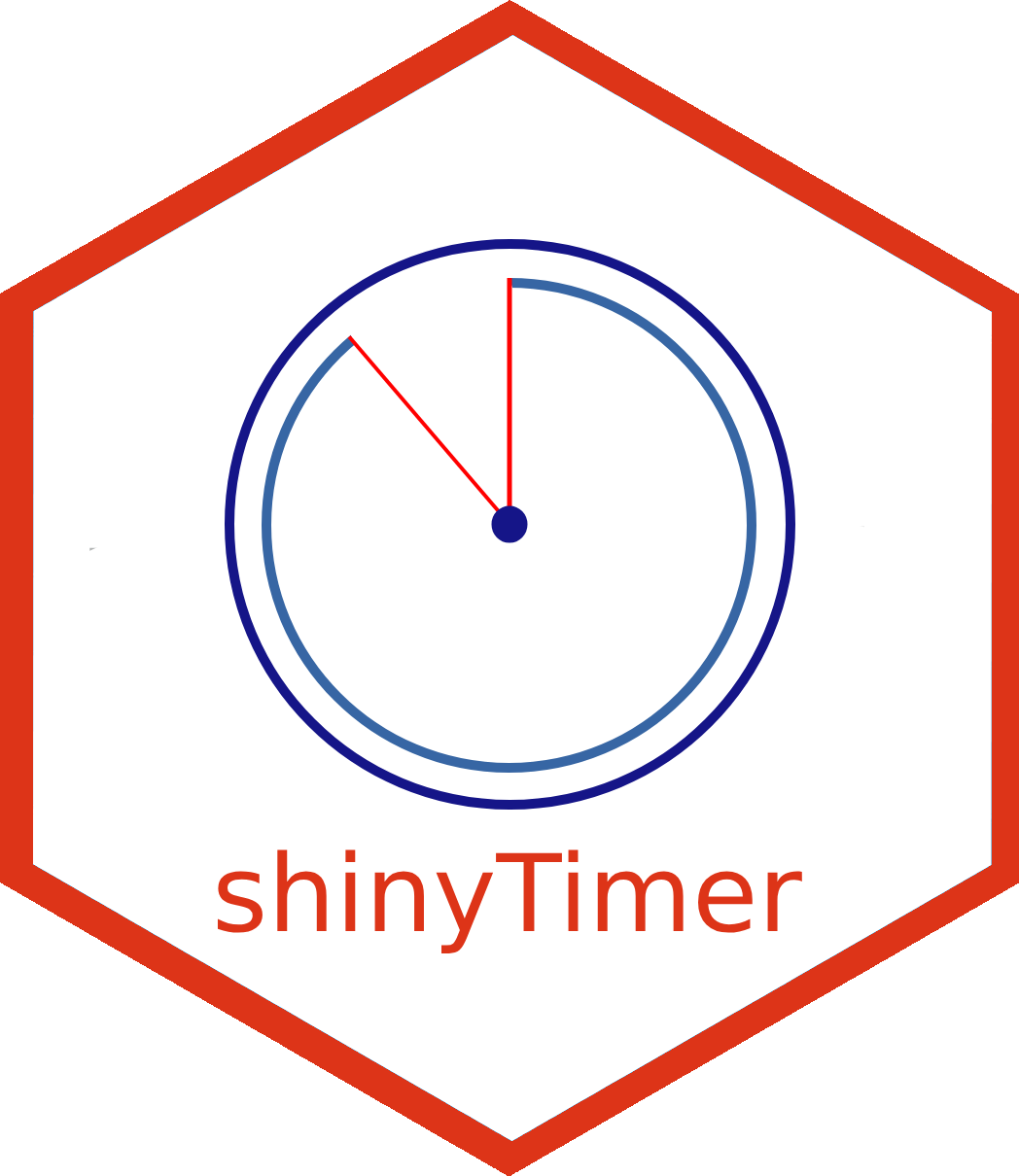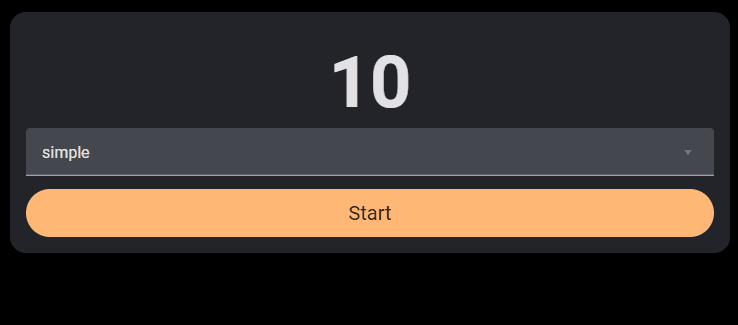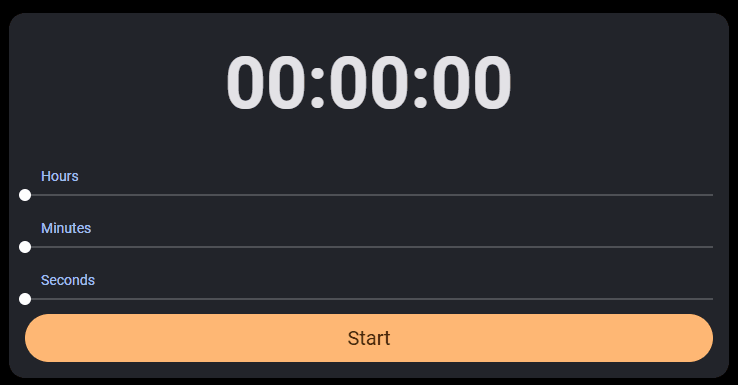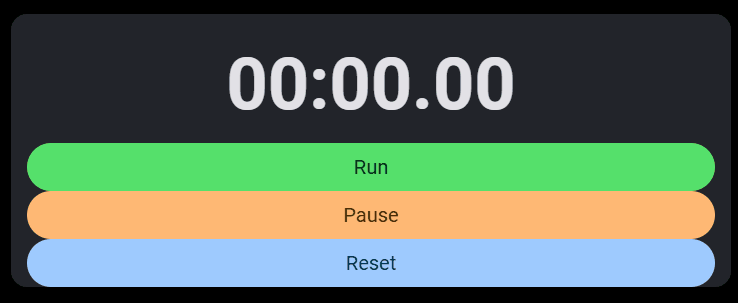Customizable Timer for 'shiny' Applications.
shinyTimer 
shinyTimer allows you to easily integrate a countdown timer into Shiny UI, providing real-time updates and server notification when the timer completes.
In examples below I make use of shinyMobile framework.

Install
Development version:
# install.packages("remotes")
remotes::install_github("maciekbanas/shinyTimer")
How it works
To get things work you need to add in your UIshinyTimer() and trigger an action in your server (e.g. countDown()).
Try it out:
ui <- shinyMobile::f7Page(
shinyMobile::f7Card(
shinyTimer::shinyTimer(
inputId = "shiny_timer",
seconds = 10L,
type = "simple",
style = "font-weight: bold; font-size: 72px; text-align:center"
)
)
)
server <- function(input, output, session) {
shiny::observe({
shinyTimer::countDown(
inputId = "shiny_timer"
)
})
}
shinyApp(ui, server)
shinyTimer() is by default a simple one, but you can switch to clock types by passing mm:ss, hh:mm:ss or mm:ss.cs (with centiseconds) to type parameter.

You can either set seconds, minutes or hours.

When timer completes
Once the timer reaches 0 JavaScript sends timer_done value to Shiny input. You can use it to trigger an action (see example below).

ui <- shinyMobile::f7Page(
shinyMobile::f7Card(
shinyTimer::shinyTimer(
inputId = "shiny_timer",
seconds = 10L,
type = "simple",
style = "font-weight: bold; font-size: 72px; text-align:center"
),
shinyMobile::f7Button(
"start_timer",
label = "Start",
size = "large",
rounded = TRUE,
color = "orange"
) |>
htmltools::tagAppendAttributes(
style = "font-size:20px;"
)
)
)
server <- function(input, output, session) {
shiny::observeEvent(input$start_timer, {
shinyTimer::countDown("shiny_timer")
})
shiny::observeEvent(input$timer_done, {
shinyMobile::f7Dialog(
id = "dialog",
title = "Time's Up!",
text = ""
)
})
}
shinyApp(ui, server)
Stopwatch
You can also use shinyTimer as a stopwatch. Simply trigger shinyTimer in your server with countUp(). You can also pauseTimer() and resetTimer().

ui <- shinyMobile::f7Page(
shinyMobile::f7Card(
shinyTimer::shinyTimer(
inputId = "shiny_timer",
seconds = 0L,
type = "mm:ss.cs",
style = "font-weight: bold; font-size: 72px; text-align:center"
),
shiny::br(),
shinyMobile::f7Block(
shinyMobile::f7Button(
"start_timer",
label = "Run",
size = "large",
rounded = TRUE,
color = "green"
) |>
htmltools::tagAppendAttributes(
style = "font-size:20px;"
),
shinyMobile::f7Button(
"pause_timer",
label = "Pause",
size = "large",
rounded = TRUE,
color = "orange"
) |>
htmltools::tagAppendAttributes(
style = "font-size:20px;"
),
shinyMobile::f7Button(
"resume_timer",
label = "Reset",
size = "large",
rounded = TRUE,
color = "blue"
) |>
htmltools::tagAppendAttributes(
style = "font-size:20px;"
)
)
)
)
server <- function(input, output, session) {
shiny::observeEvent(input$start_timer, {
shinyTimer::countUp("shiny_timer")
})
shiny::observeEvent(input$pause_timer, {
shinyTimer::pauseTimer("shiny_timer")
})
shiny::observeEvent(input$resume_timer, {
shinyTimer::resetTimer("shiny_timer")
})
}
shinyApp(ui, server)